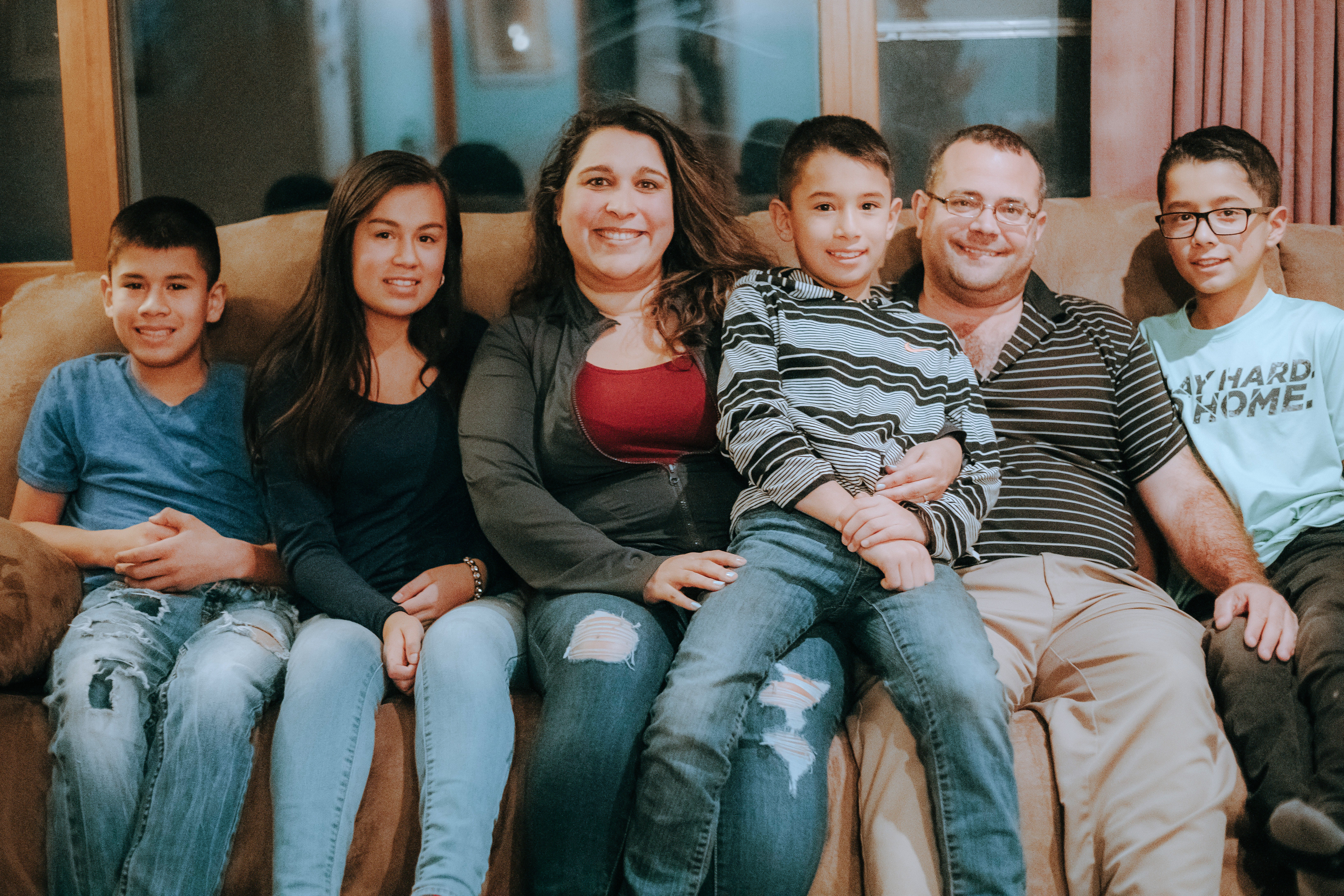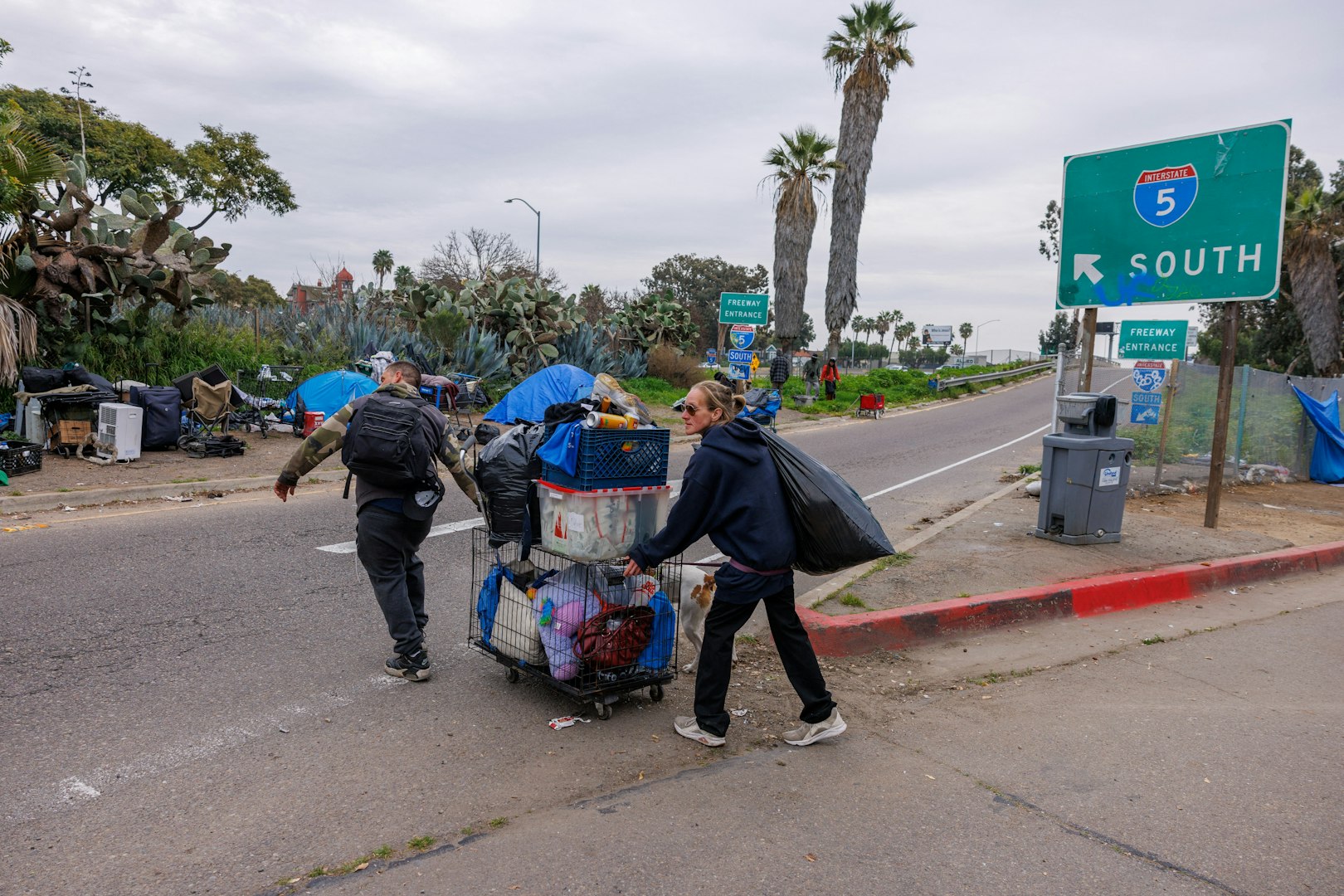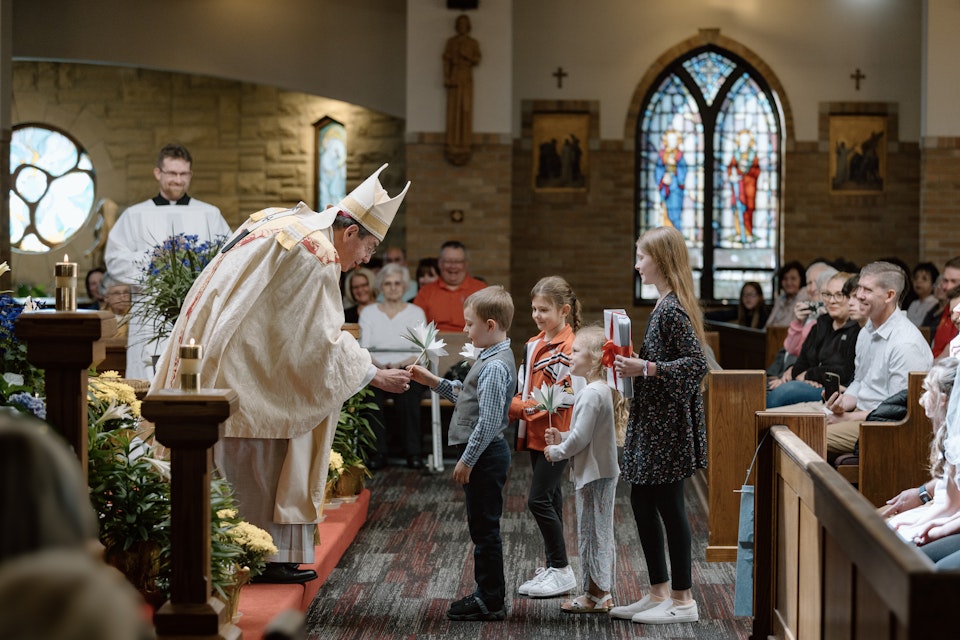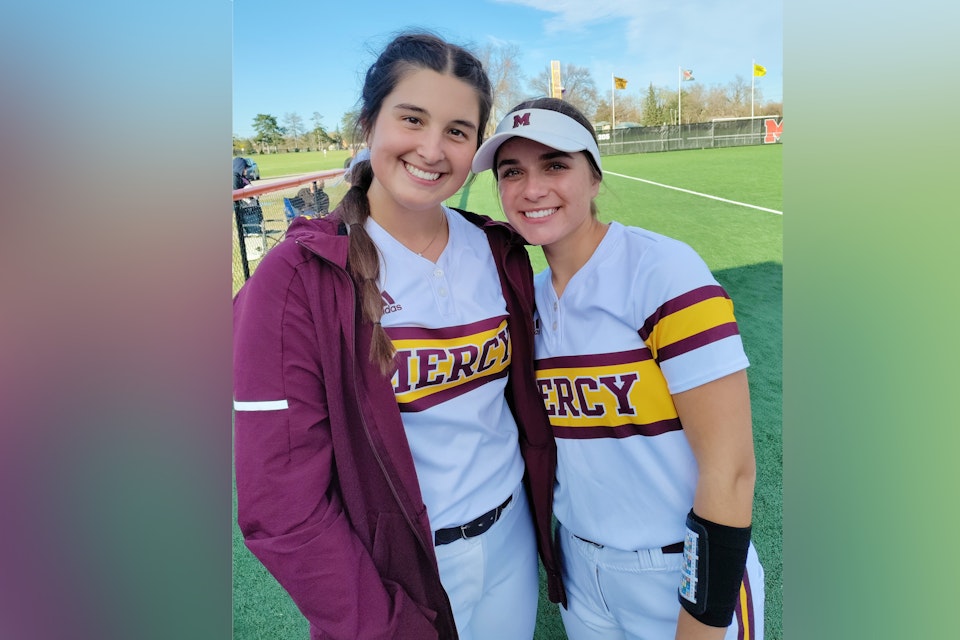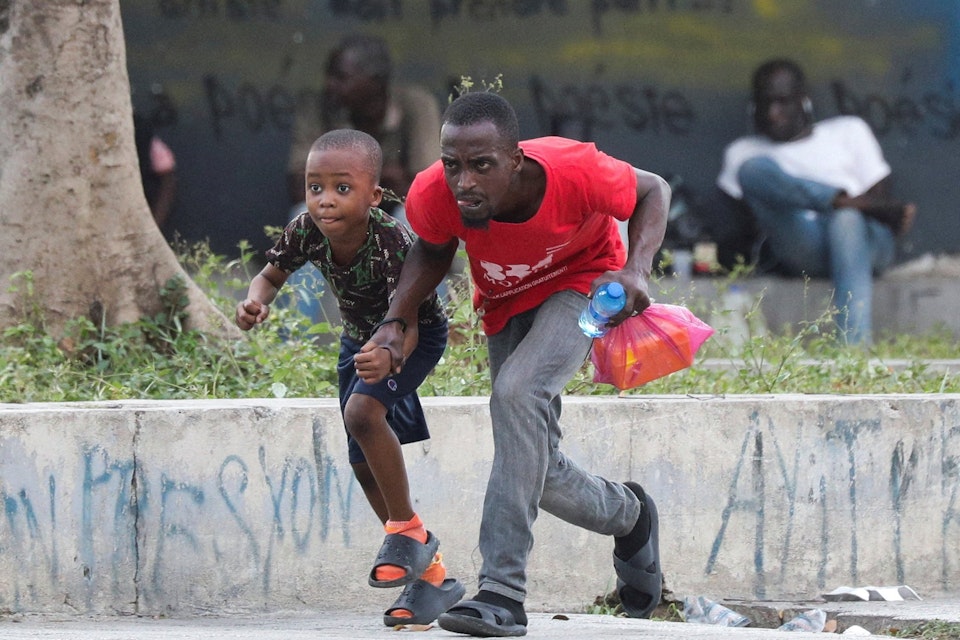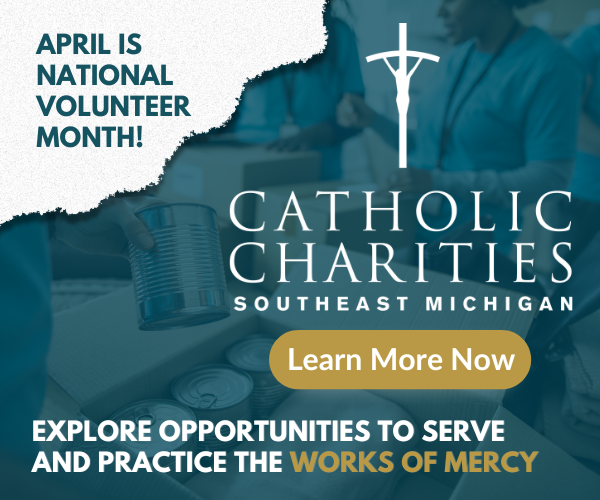WARREN — Jackie and Travis Allor saw the signs they were meant to adopt children.
It’s not a figure of speech, they’ll tell you. They literally heard commercial spots on the radio and billboards talking about the need for foster parents and what it means to adopt a child and welcome them into your life.
Today the Allors are parents to four children: Elicia, 13, Emiliano, 12, Enrique, 11, and Ezekiel, 10. The four children are full of life and always moving around — even during a family interview in their Warren home. There is love, there is laughter, much like any family you meet.
Like any family in the world, they have their own story. But foster and adopting families have a unique tale of life – with the joys and struggles that go along with it — including what it means to be a family.
In celebration of National Adoption Month and with the release of the major motion picture “Instant Family,” about a married couple who become the parents of three adopted children at once, Detroit Catholic sat down with three local families to share their joys, sorrows and everything in between.
Destined for adoption
It was 2009 and the Allors were married for three years before Jackie brought it up with Travis.
“We talked about adoption and foster care for the first time and realized we were both getting the same signs,” Jackie said. “We talked about it, saying we would pray about it. We entered a year of prayer and research on which way was best for us.”
Travis had some experience with adoption, his cousin having previously adopted her daughter from Russia. The two started discerning the foster care process in August 2009, getting their paperwork started and submitting to an inspection by the state, when a series of setbacks — a softball injury and a car crash — temporarily threw a wrench in their plans.
It wasn't until a family wedding in August 2010 that Jackie’s grandmother brought up four children in the extended family who were currently in foster care.
“We had finally finished the application process and our license had arrived that morning,” Jackie said. “My grandma Del was talking about these kids no one wanted to step up for and offer a place in their home. She said she wanted to take them in, and that’s when I told my grandma we got our license in the mail that morning, which said we were qualified to be foster parents.”
After praying together, Jackie and Travis agreed to move forward. But the journey wasn’t easy.
Elicia was with her great-aunt Lisa while the boys were with a foster parent, “Mr. Jim.” It was one of few times the three boys were together — for some boys it was their fourth placement in a year.
Jackie and Travis met Lisa and her husband, Frank, in Saginaw on Labor Day weekend with the judge and two social workers, and from that meeting, it was agree that Jackie and Travis would take in Elicia.
“Six days after, Lisa and Frank brought Elisa to our home,” Travis said. “So we had to enroll her for the first day of school by Tuesday, and the meeting happened on a Wednesday prior to Labor Day. We purchased all new supplies, helped her adjust to living with us. In late September, the Saturday before Elicia arrived, our family came over to decorate her room and get things ready.”

Travis and Jackie took Elicia to the zoo and a gold fish pond at Travis’ father’s house for their first outing. Getting used to becoming foster parents to a 5-year-old is one thing, but then the couple got a call from a Genesee County social worker.
“The call stated the mother’s rights were going to be terminated, and she asked if would we like to adopt Elicia,” Jackie said. “‘We said yes, but then the social worker said, ‘By the way, there are three other boys that are her brothers, would you like to adopt them as well?'”
And that's how, in the span of just three months, the Allor family of two turned into the Allor family of six.
The process had tricky steps along the way, including difficult conversations with the children's birth mother, and deliberations about when to incorporate the boys — who had been in five foster homes in one year — into the family.
Emiliano joined the family that Christmas, and then Enrique and Ezekiel followed, with the whole group fully moved in by March 2011 into their — what seemed even smaller — Eastpointe home.
“I joke I was praying for four years for kids, and God gave us four kids at once,” Jackie said. “Social Services really helped. Our home wasn’t entirely big enough for four kids. At the time they were so little, (so) you could have three boys in one room.”

In January 2012, the process for legal adoption began, dubbed “Allor Day” in the family. Enrique (“Que”) stepped out of the Macomb County Courthouse with arms outstretched, proclaiming, “Now I’m an Allor!”
But even then, and today, being a foster child and going through the adoption process can be confusing, and challenging, for the children whose lives are filled with continuous change.
“I remember seeing everybody I knew. I remember when I met my mom, playing the ‘Candy Game,’ at Aunt Lisa’s house, but I think I was very irritated with them,” Elicia said. “I didn’t want to leave. I thought I was probably going to move again. When you are in foster care, there are not a lot of kids around; you are in different homes, where I didn’t have him (Isaac, Elicia’s older half-brother who spent time with Elicia in foster care). It was weird living with my younger brothers during that time. I don’t know if I was excited; I knew who they were, but I didn’t know what they were like.”
Life is complicated, messy. And for children in foster care, where stability is not a guarantee, life comes with longer answers to questions many in the world probably can’t understand.
For the Allor children, seemingly innocent questions such as, “Where are you from?” or “Where are your baby pictures?” or even “Why don’t you look like your dad?” can lead to uncomfortable emotions.
“Each child is different, had different therapies, and there's different processing involved,” Jackie said, talking about the adjustments the children — along with Travis and Jackie — had to make in raising adopted children. “You start with people coming to your home, helping when they can. We had respite workers — my mom and sisters and brothers — so we could take breaks. When you get them as infants it’s easier; they’re hungry, tired or (need a diaper changed). But they all behave in different ways as they grow older.”
Learning the intricacies and the ins and outs of every child, developing at their own pace, was the challenge Jackie and Travis accepted as parents — and they emphasize it is a challenge they thank God every day they did accept.
In October 2012, the family bought their current home in Warren, complete with a big yard perfect for running around and yelling.
As time went on, Jackie and Travis discovered their children’s unique talents — from Emiliano playing the piano to Ezekiel running a sub-21-minute 5K in the fourth grade.
“When you go to adopt, you don’t know what to expect, so you roll up your sleeves to meet the kids where they are,” Jackie said. “Elicia is blooming into an amazing young woman. Emiliano can play the piano by ear, and we just figured this out. Enrique is quiet but smart; he takes things apart and dissects them. Zeke is our ball of energy. Just seeing us become a family, it’s amazing.”

The joys are sometimes met with sorrows. Sometimes there are difficult moments, “triggers” to unhappy memories or behaviors that are the result of unstable homes. The occasional inappropriate question comes up that no child should have to answer, or explanations they shouldn’t have to justify to strangers.
“Sometimes I wish I wasn’t adopted; I just wanted to be normal,” Elicia said. “It affects you; you get all sort of questions, looks. Questions like ‘Who is my dad?’ Questions that aren’t appropriate, such as what happened or why it happens.”
“A question I get a lot is ‘Why do you look all alike if you’re adopted?’” Emiliano added. “Because we’re brothers and sister. It’s obvious.”
For foster parents and parents who adopt, the transition is also difficult. Three months after adoption, it can be difficult to find social services available to help the children address underlying issues that affect their well-being.
“The kids have been to so many homes, they learn how to tell the therapist what they want to hear,” Travis said. “There are not that many experts with the particular kind of issues they need to talk about. The children become very good at responding to the adults’ or experts’ questions, so they wouldn’t have to deal with any issues.”
From therapists to “three-day birthday rules” that determine how long a birthday present belongs to the celebrant before it’s “fair game,” raising four adopted children can be challenge. But for Travis and Jackie, and the Allor children, it is their challenge, their life, their family.
“It just looks different; it’s parenting on steroids, I call it,” Jackie said. “It was easier when they were babies. But you pray about it, a lot. I remember praying to God for children, and it was literally a sign, literally billboards, literally radio ads, that lead you to say, ‘OK, Jesus.’”
Home is meant to be a place where family can live in peace and love — granted, with four children and a dog, the peace part doesn’t come easy — but the love is self-evident.
Through discerning the adopting process, to broken legs, to experiencing the loss of a beloved grandmother, to the more-complicated-than-usual lives of four, bright, energetic children, the Allor family has a back story that isn’t a Hollywood script, and isn’t what one would call average.
But the Allor family has something in common with all families: They are the way God meant them to be.
Family.
“Looking back at how God moves and works so purposefully, these children were meant to be in our lives,” Jackie said. “Parenting reveals to me who God the Father is, a lot, and how God made each of these [children] purposely to be in our lives. It shows when you go to God to ask for something, you don’t know what you’re going to get, but you roll up your sleeves and meet them where they are. And that is what I thank God for, every day.”
Receiving Gabriel from Mary
Parenthood is built on waiting.
Waiting for a child to walk, waiting from them to say their first words, to tie their shoes, clean their room, graduate from kindergarten.
For most mothers, parenthood begins with waiting nine to 10 months as the child grows in the womb.
For families who adopt, the waiting looks different, but still packs all the stresses of anticipating life as parents.
Holly Flickinger always knew she wanted to adopt a child — being raised in a family where her aunt adopted Holly’s cousin as a child and seeing the beauty adoption adds to families.
When dates with her eventual husband, Tom, became more serious, the couple talked about wanting to adopt.
“I always knew I wanted to adopt; I just saw the beauty of it,” Flickinger, an employee of the Archdiocese of Detroit, told Detroit Catholic. “As a kid, it was kind of magical having my cousin come into the family this way. She was one year old at the time, and I always knew it was something I wanted to do.”
“I always knew I wanted to adopt; I just saw the beauty of it. As a kid, it was kind of magical having my cousin come into the family this way. She was one year old at the time, and I always knew it was something I wanted to do.”
Holly and Tom were married in 2013, and within a year of marriage, the couple was already thinking about adopting and learning more about agencies and the process.
“I knew there was a lot of paperwork and waiting involved, learning from my aunt and her experience, but I wasn’t firsthand attached to all the emotions she went through,” Flickinger said. “It wasn’t until we were in the waiting period, especially in our situation, because we were a little backwards.”
The “backwards” nature of the Flickingers’ adoption story started in 2014. Holly was a parishioner at St. Aloysius in downtown Detroit while she and her husband were looking into adoption. All the while, she kept praying to Mary for guidance and a child, gazing on the mosaic of Christ the Good Shepherd that overlooks the altar.
“I remember going to church every week, praying Hail Marys over and over again, and what I had been coming back to was hoping for a child whether naturally or through adoption. And as I was looking at that mosaic, I kept thinking of Mary.”
One of the groups Holly and Tom were looking into was Community Social Services of Wayne County, who told the couple they were winding down their adoption program. The Flickingers looked at other agencies, but with the holidays approaching, they decided to take a break from searching and see whether God had something planned for them.
That pause didn’t last long, as by mid-January Holly received a phone call from Community Social Services. The agency still had foster children who needed a home, and they were going through previous clients to see who was still interested.
“I was in court that date, covering a hearing for my employer at the time,” Holly said. “I didn’t get the message until after business hours. It was Martin Luther King Jr. weekend, so I had to wait three days to call her back.”
The wait was actually a day longer, since the woman who called Holly on Friday was sick on Tuesday. On Wednesday, she finally got in contact with the social worker for a conversation that would change her family forever.
“I got a call from the social worker who was sick, so I went to a conference room at work, and she told me they had a little boy on their case load,” Flickinger said. “He was eight months old at the time. And his name is Gabriel.”
Holly heard his name for the first time and had to catch her breath.
“She kept going on about how as an adopted a parent you have the right to change the name to whatever you want, and I interrupted her to say, ‘I obviously haven’t talked to my husband yet, but I’ll tell you, if we’re approved to adopt this child, we won’t change his name.’”
Gabriel, of course, was the archangel sent to Mary to reveal to her she would be the Mother of God.
“Spending all those months praying to Mary to intercede to help us have a child, and now we’re being given a child named Gabriel, named after the archangel who told Mary she was going to be a mother,” said Holly, whose sister’s name also is Gabrielle. “The whole thing blew my mind.”
“Spending all those months praying to Mary to intercede to help us have a child, and now we’re being given a child named Gabriel, named after the archangel who told Mary she was going to be a mother,” said Holly, whose sister’s name also is Gabrielle. “The whole thing blew my mind.”
Under normal circumstances, families first go through their home studies, and once approved, then they are paired with a child.
For the Flickingers, adoption was no longer some theoretical option.
“There was a real child ready for us, it was crazy,” Flickinger said. “That’s why it was backwards for us; most of the time, when going through home study, it is hypothetical; you get matched after the home study is approved. But we knew this child was really out there; the social worker showed us pictures of him on her phone. She never sent pictures to us — we couldn’t have them — so it was hard to describe what he looked like to family, but we knew he was there.”
Gabriel at the time was living with a woman named Peggy Fiebelkorn, a member of St. Faustina Parish in Warren who has cared for an estimated 200 foster children.
That might seem like a lot, until you look at her family pedigree. Fiebelkorn’s parents, Catherine and Donald, raised foster children for 51 and 42 years, respectively. Being raised around foster children, Peggy knew she wanted to care for children in need.
“Basically, you welcome them in like they are family,” Fiebelkorn said. “You take care of them like family. You are sad to see them leave when they go up for adoption, but they go to a parent who really wants them. If they go back home, it’s wonderful, if they go back to a situation that is better than why they left. But in the meantime, you try to raise them like they are your own.”
Fiebelkorn adopted one of the children she fostered, her daughter, Rachel, who is now 13 years old. Fiebelkorn said potential foster parents shouldn’t look at fostering as a stepping stone to adoption, but as a way to provide an incredible service to a child in need.
Fiebelkorn adds caring for vulnerable newborns leads to many sleepless nights, and the future of her foster children is uncertain at times. But an important requirement for any foster parent is to love. And anyone can love a baby.
“I was only five when my parents started raising foster kids, so I grew up with foster kids,” Fiebelkorn said. “You can love almost anybody, as long as you put your heart into it. Maybe because I was raised around it, if I didn’t do it I would be lonely.”
In Gabriel’s situation, it was Fiebelkorn’s job to provide a loving home during an important period in his life.
“Knowing you are helping children is the greatest joy in fostering,” Fiebelkorn said. “You don’t know for sure what has happened to them, but you are taking a child, loving them, caring for them, and giving them a chance for life.”
For the Flickingers, knowing Gabriel was there started a process of gathering and filing paperwork, preparing for home inspections and waiting for the system to run its course.
“It is a lot (of paperwork), and it seems more overwhelming than it really is,” Holly Flickinger said. “That is something I want anyone who is thinking about adoption to know. When they give you all the paperwork and everything, it seems impossible, but what it really is, you get a social worker who comes to your house two or three times and is there to help you. You gather your birth certificate, your marriage license, financial stuff, all these documents to submit to the agency.”
After submitting paperwork — Flickinger suggests breaking down all the requirements into more bite-sized pieces — a social worker sits down with the prospective family to answer questions about each parent’s upbringing, gauging what kind of parents they would be and whether they are a good fit for the child.
“In our experience, it was less of ‘Are you ready to be parents?’ and more ‘Are you ready to be this child’s parents?’” Flickinger said. “She knew Gabriel; he was in her care, knew what his likes and dislikes were, what kind of affection he responded to. It was more gauging if we were right for him.”
“In our experience, it was less of ‘Are you ready to be parents?’ and more ‘Are you ready to be this child’s parents?’” Flickinger said. “She knew Gabriel; he was in her care, knew what his likes and dislikes were, what kind of affection he responded to. It was more gauging if we were right for him.”
Holly and Tom met Gabriel for the first time on June 25, 2015, a little less than a month after he turned one. The couple arranged for the social worker to give young Gabriel his first birthday gift from his parents, a Leapfrog stuff dog toy. They signed a card, but elected not to use “Mom” and “Dad,” attempting not to provoke fate before the adoption process was finalized.
For Fiebelkorn, moments like watching new parents meet their child for the first time and — in the best circumstances — staying in contact with the adopting family are the most rewarding parts of being a foster parent.
“I think the joy of seeing them grow up, helping them through the early stages of life, you hope what you did for them in the time you had them will make a difference in their life,” Fiebelkorn said. “It’s knowing the parents are happy you helped raise them. It’s not a high-paying job, but it’s a high-rewarding job.”
That dedication, that love for every child who walks through her door, is something the Flickingers give witness to, both during the adoption process and the occasional family visits to Fiebelkorn's home.
“Peggy (and her parents before her) treat every child like their own,” Flickinger said. “There's a cliche about foster care, that children move from place to place with nothing but the clothes on their backs. Children in Peggy's home each get their own clothes, toys, even a scrapbook of pictures from their time with her. When they're adopted or reunited, everything they own goes with them. Gabriel may have been adopted at 1 ½ years, but he has toys and photos from when he was just a few days old.”
The June 25 meeting happened after Holly and Tom were approved by the agency, allowing for visits. Gabriel couldn’t move in with the family just yet; that would have to wait until October, and the Michigan Children’s Institute, the state government institution whose superintendent is the legal guardian of all children in foster care.
Gabriel was 1 ½ by the time he could move in, beginning a new pace of life for the family.
“All the routines were jumbled and it took a lot of adjusting,” Flickinger said. “Once we got back to work, we got settled into daycare. It wasn’t, I would say, a seamless transition, but it was certainly difficult, becoming a full-time parent overnight, and to a toddler, too.”
Becoming new parents of a toddler requires a special level of patience. Added to that was the patience required for the state to finalize the adoption six months after Gabriel moved into the Flickingers' home.
On Friday, May 13, 2016, the state formally approved the adoption, making Gabriel a permanent member of the family.
“We got a letter from the judge and we got the certificate with the official order,” Flickinger said. “Something in the letter struck me at the time. It stated that Gabriel is to be treated as your natural child in all sense, including inheritance and whatever else, in the strictest legal sense. The judge’s letter made it very clear the adoption is finalized, and he’s to be treated no differently than your natural child. And it struck me at the time as funny in a way, because I didn’t need to be told that; my husband didn’t need to be told that. But it was just a reinforcement, a judge telling us what we’ve known since we heard his name.”
“The judge’s letter made it very clear the adoption is finalized, and he’s to be treated no differently than your natural child. And it struck me at the time as funny in a way, because I didn’t need to be told that; my husband didn’t need to be told that. But it was just a reinforcement, a judge telling us what we’ve known since we heard his name.”
Flickinger added the natural connection between a parent and their child, between a mother and her child, is just as strong for an adopted child.
“That connection is still there, so maybe it comes from God,” Flickinger said. “In our story, all of this came from Him. He gives you that connection, even if it didn’t develop biologically. God gives it to you. I forget sometimes that he is adopted. I was putting him to bed the other night, thinking how odd it is to think of him in any other family, or him having any other mom. That connection to someone is real.”
The Flickingers, the Allors and just about any other family with adopted kids are often told how lucky the children are to have parents who took them into their homes. The parents acknowledge there is luck involved, but it’s not all on the children's part.
“We’re the lucky ones,” Flickinger said. “If it wasn’t for me and my husband, someone else would have adopted Gabriel; someone else would have loved him. He still would have had a wonderful life. I’m the lucky one; I get to go pick him up from school. I get to take him home. I get to feed him dinner and play with him. I get to be his mom.
“If God has told me anything, it’s that He loves me and my family so much.”
For more information
If you are interested in adoption or foster care, contact Catholic Charities of Southeast Michigan at (248) 552-0750 or email Kristie Hardin, assistant director for child welfare at CCSEM, at [email protected]. For more information click here.


